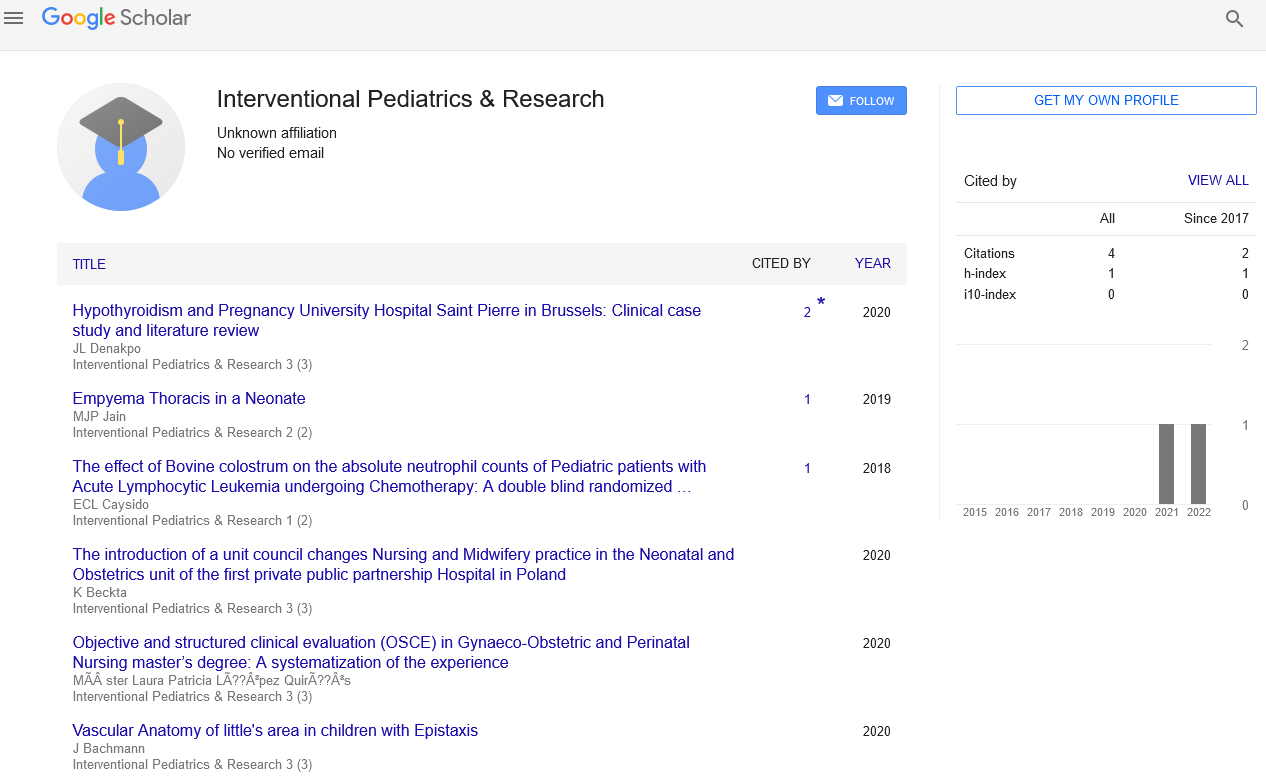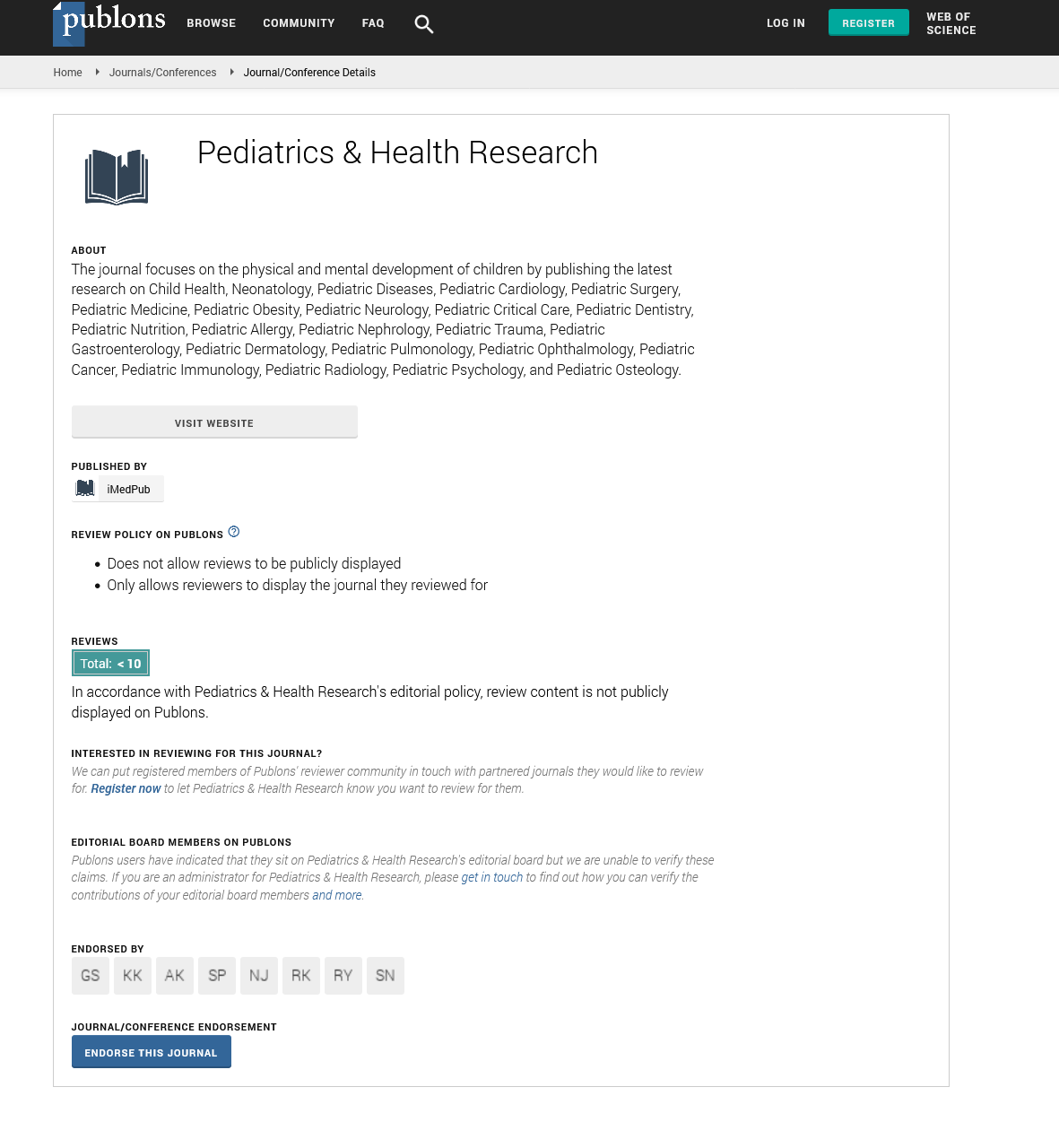Perspective - Interventional Pediatrics & Research (2023) Volume 6, Issue 3
The Global Integrated Psychiatric Association Psychotherapy of Children in a Multicultural Environment
- Corresponding Author:
- Ramin Mojtabai
Department of Psychiatry, Harvard Medical School, Mirebalais, Haiti, Caribbean
E-mail: ramin@moj.com
Received: 17-Dec-2023, Manuscript No. ipdr-23-83919; Editor assigned: 20-Dec-2023, Pre-QC No. ipdr-23-83919(PQ); Reviewed: 03-Jan-2023, QC No. ipdr-23-83919; Revised: 28-Mar-2023, Manuscript No. ipdr-23- 83919(R); Published: 04-Apr-2023, DOI: 10.37532/IPDR.2023.6(3).44-45
Abstract
The international network of integrative mental health was founded in March and officially released its website in October 2012 to address the current issues affecting mental healthcare. To push a worldwide agenda for evidence-based integrative mental healthcare, our goal was to establish an international association of physicians, researchers, educators, and public healthadvocates. Integrative Mental Health (IMH), a new field, embraces the bio psycho socio spiritual model and uses evidence-based treatments from both conventional healing and cutting edgescientific disciplines. IMH combines “conventional” therapy with evidence based Complementary and Alternative Medicines (CAM) and therapies, lifestyle changes that promote health and theprudent use of psychopharmacology and psychosocial therapies. We are happy to announce that INIMH has partnered with Advances in Integrative Medicine (AIMed). The journal’s guiding principle is in Collaboration with INIMH is possible because both organisations are dedicated to promote a rigorous, evidence-based integrative approach to medicine and mental health. Interest in the connection between ethnicity and child mental health has been rekindled by the diversity of ethnic groups in the increasingly multicultural environment that children live in. The interpretation of data from cross-cultural comparative studies has been the focus of recent writing in cultural child and adolescent psychiatry, raising important questions about conceptual and methodological issues like the cross-cultural validity of diagnostic tools, the role of underlying social and economic variables in accounting for difference, and cultural differences in the interpretation of childhood behaviour. Parents and professionals view children’s behaviour differently, as is well known, but professionals with diverse cultural origins may also have quitevaried expectations for and interpretations of children’s behaviour. Although there is someevidence of childhood illnesses particular to cultures, e mentioned variations in symptomatology. The cross-cultural data examined in the paper mostly relates to research done in the UK, but it also draws on comparable research done in other regions of the world.
Keywords
INIMH •Integrative medicine • Mental health • Psychiatry • White paper
Description
Most people who suffer from mental illness a round the world a re now receiving little to no care, and many commonly used treatments lack convincing proof of their efficacy or safety. The traditional procedures in mental healthcare and the orthodox paradigm underpinning psychiatry must urgently alter since the current model of mental healthcare does not adequately address this shortcoming. Basic educational improvements, physician training, and new research goals are some of these modifications. According to survey results, integrative mental healthcare is already the de facto standard of care for many mental health practitioners, and the public uses it extensively.
The shortcomings of the current medical paradigm are addressed by the newly growing discipline of Integrative Mental Health (IMH). IMH uses evidence based and evidence guided treatments from both conventional healing and cutting edge scientific disciplines. IMH employs the bio psycho socio spiritual model. IMH integrates “traditional” interventions such as the prudent application of psychopharmacology, psychosocial therapies, evidence based CAM medications and therapies, mind body medicine, and lifestyle changes that promote health. The clinical application of IMH considers a variety of social, cultural, economic, and spiritual factors that have an impact on mental healthcare in various nations. The emerging IMH paradigm currently requires guidance on a number of priorities, including research initiatives, educational curricula, clinical practice guidelines, information dissemination to the general public, and collaboration with governmental organisations to support the development of health policy initiatives. The International Network of Integrative Mental Health (INIMH) was founded in March in response to the urgent and growing demand for better mental healthcare globally as well as the shortcomings of traditional therapies and care methods. Integrated, customised, whole-person care based on a preventative and wellness model is being advanced by the non-profit INIMH, which offers a framework for global networking and collaboration using both conventional and Complementary Medicine (CAM) techniques. INIMH does more than only offer a venue for networking among those working in the field of IMH.
Conclusion
Pushes for improvements in education, research, and healthcare delivery paradigms while working to develop consultative connections with academic institutions and governmental organisations. The aspirational objective of INIMH is to promote progressive worldwide reforms in mental healthcare policy that will result in a rise in the application of IMH practices that are based on empirical research in psychiatric hospitals and primary care settings.
Acknowledgment
The author would like to acknowledge his department of psychiatry, Harvard medical school, Haiti for their support during this work.
Conflict of Interest
The author has no known conflicts of interested associated with this paper.


